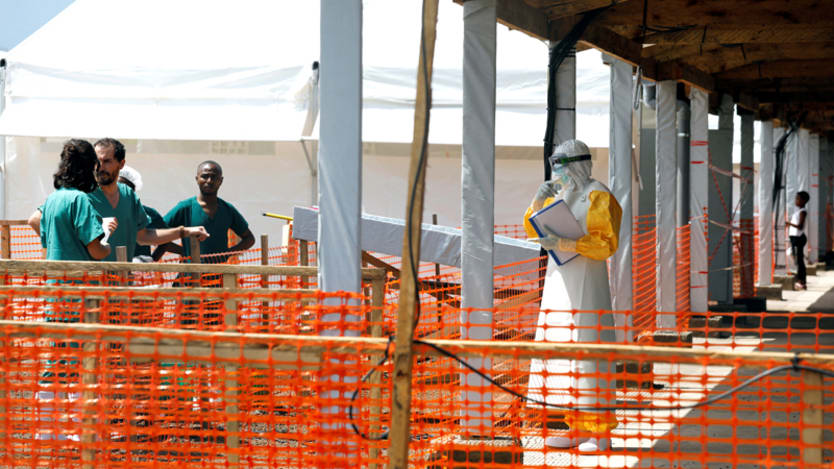New report warns of the consequences of inaction on preparedness

MANILA — The 1918 influenza pandemic killed an estimated 50 million people globally. If a similar pandemic takes hold today, it could kill a similar number of people and more, according to a new report by the Global Preparedness Monitoring Board, a high-level body set up over a year ago to monitor the world’s preparedness to outbreaks such as Ebola and other health emergencies.
The threat of an outbreak or similar pandemic spreading across the world is real, but the world is largely unprepared for it, according to the report, “A World At Risk,” which again underscores the need for governments and international organizations to invest in preparedness and take it seriously.
Climate adaptation is expensive. Inaction will cost more, report finds
Investing in climate adaptation is worth more than $7 trillion in net benefits, according to the Global Commission on Adaptation. "If the economics are so attractive, why isn't it happening?" asks Manish Bapna, managing director of the World Resources Institute.
The call for the world to better prepare for the next outbreak and health emergency isn’t new. But Alex Ross, director of the secretariat of the Global Preparedness Monitoring Board, said that while there’s been a lot of talk on preparedness, not much has been done to date.
“After every single major outbreak, and you go back to SARS, H5N1, H1N1, Ebola in 2014-2016, you see the same thing in many of the humanitarian disasters. A lot of money goes into response and then it simply disappears right afterwards,” he told Devex.
The report identifies seven priority actions and targets heads of governments. One of the recommendations highlights the need for governments to recognize the importance of community engagement, as the current Ebola outbreak in the Democratic Republic of the Congo has shown.
“It seems to be forgotten in some places. I mean it's common sense, but it's amazing sometimes when you don't have the sensitivity to fundamentally engaging the communities in all parts of the decision making,” Ross said.
Another recommendation calls on international financing institutions such as the International Monetary Fund and the World Bank to “integrate preparedness into their replenishments, national and international financial risk assessments, incentive systems and funding mechanisms.”
The World Bank’s Pandemic Emergency Financing Facility has received criticisms over its disbursements to the current Ebola outbreak, but also of how the whole mechanism works. Ross said it’s been designed as a response mechanism and not for preparedness.
Funding is crucial to incentivize countries to continue working on preparedness efforts, such as doing joint external evaluations, or JEE, to assess their capacity to prevent, detect, and respond to public health risks. To date, 59 countries have developed national action plans for health security, but none of these plans have been fully financed, according to the report.
“The key is … there has to be a very robust system that they [countries who do JEE] buy into. But this goes back to the incentives discussion that we as the board discussed quite a bit, which is that yes, you can ask these countries to do [JEE], but if you don't give them the carrot, if you will, of having the incentives, whether it's national or international funding, then they're going to stop doing it.
“Why would they do another JEE if you go through the pains of doing this, you can't implement and then you have a very negative outcome at the other end,” Ross said.
He pointed out that the report is not just targeted to low- and middle-income countries, but also high-income countries as well.
“Clearly the nature of diseases and the way they're spreading means that you can't be complacent. You can't just say, 'Oh, it's over there. It's in Africa and it's not affecting me over here in North America,’” he said. “It's been proven again and again that this actually can really spread.”
The report launches just as the U.N. General Assembly opens in New York. Ross said this was done to make sure the report reaches multiple stakeholders, such as foreign affairs and finance ministers and not just health ministers
“This is just the beginning of the GPMB ... if you speak to the health audience, yes, they understand it [but] I think the action is that we need to go beyond that,” he said.
Search for articles
Most Read
- 1
- 2
- 3
- 4
- 5








